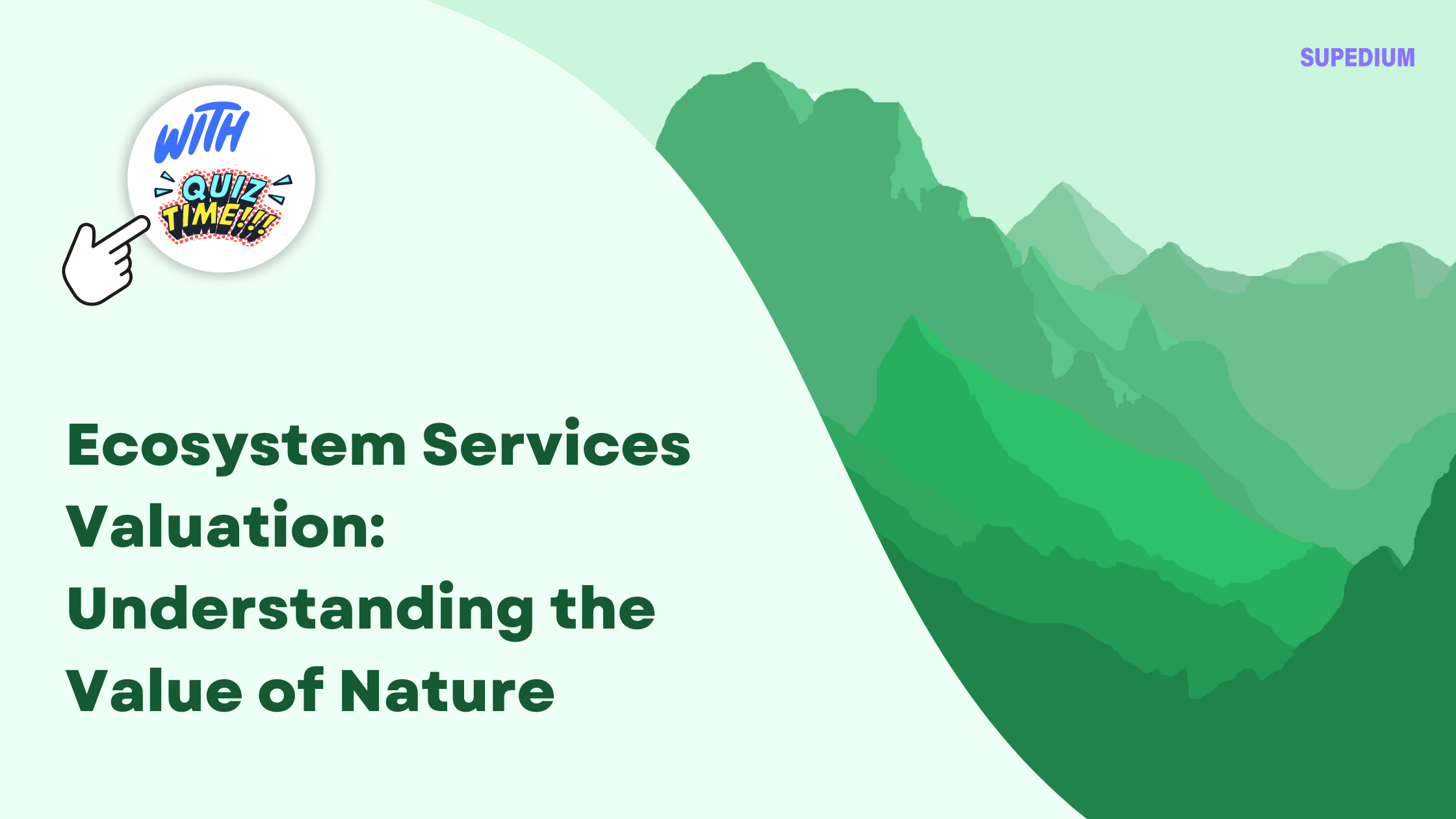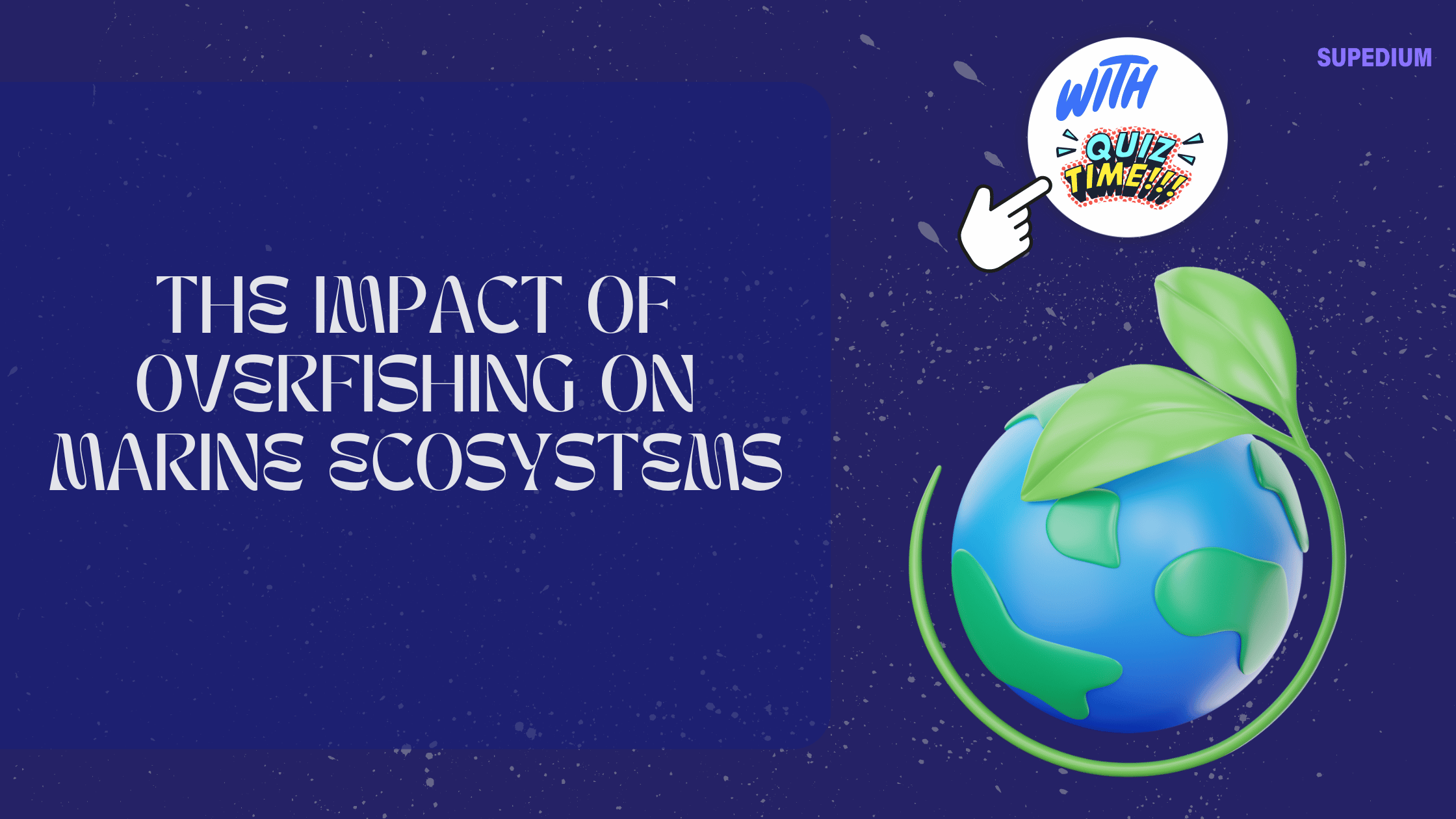Table of Contents
![]()
Introduction
Ecosystem services are the myriad benefits that humans derive from the natural environment. This concept, which gained prominence through the work of ecologists and economists, underscores the vital role that healthy ecosystems play in sustaining human life. From the air we breathe to the water we drink, ecosystems provide essential services that underpin our well-being and economic prosperity. Valuing these services is crucial for making informed decisions about land use, conservation, and resource management.
Types of Ecosystem Services
Ecosystem services can be categorized into four main types, each contributing uniquely to human well-being:
- Provisioning Services: These are the tangible products obtained from ecosystems. They include:
- Food: Ecosystems provide the basis for agricultural crops, livestock, and fisheries.
- Water: Natural systems regulate water cycles and supply fresh water.
- Timber and Fiber: Forests and other plant-rich environments yield materials for construction, paper, and clothing.
- Medicinal Resources: Many pharmaceuticals are derived from plants and animals.
- Regulating Services: These services involve the benefits obtained from the regulation of ecosystem processes. They include:
- Climate Regulation: Ecosystems like forests and oceans absorb and store carbon dioxide, influencing global climate patterns.
- Water Regulation: Wetlands and watersheds manage and filter water, reducing the risk of floods and maintaining water quality.
- Disease Regulation: Healthy ecosystems can mitigate the spread of diseases by controlling vectors and pathogens.
- Cultural Services: These encompass non-material benefits that ecosystems provide, such as:
- Recreational and Aesthetic Values: Natural landscapes offer spaces for recreation and enjoyment, contributing to mental and physical health.
- Spiritual and Cultural Significance: Many cultures find spiritual and cultural meaning in natural features and landscapes.
- Supporting Services: These are the underlying processes that sustain ecosystems and, by extension, human life. They include:
- Nutrient Cycling: Ecosystems recycle nutrients like nitrogen and phosphorus, which are essential for plant growth.
- Soil Formation: The creation and maintenance of fertile soil support agriculture and plant life.
- Primary Production: Plants convert sunlight into energy through photosynthesis, forming the base of food chains.
Methods of Ecosystem Services Valuation
Valuing ecosystem services involves assessing both their economic and ecological worth. Several methods are used to quantify and understand these values:
- Economic Valuation Techniques:
- Market-Based Methods: These involve direct market values for products obtained from ecosystems, such as timber or fish. Hedonic pricing is another approach, where property values are analyzed in relation to proximity to environmental features.
- Non-Market Methods: These methods estimate values for services that do not have direct market prices:
- Contingent Valuation: Surveys are used to determine how much people are willing to pay for specific environmental improvements or to prevent environmental loss.
- Travel Cost Method: This approach estimates the value of recreational sites based on the costs people incur to visit them, including travel and time.
- Benefit Transfer: This technique applies values from one location or study to another, providing a way to estimate economic values in different contexts.
- Ecological Valuation Techniques:
- Ecological Footprint Analysis: This method assesses the amount of biologically productive land and water required to support human activities.
- Habitat Equivalency Analysis: Used in restoration projects, this approach estimates the amount of habitat needed to compensate for environmental damage.
- Integrated Assessment Models:
- These models combine ecological and economic data to provide comprehensive assessments of ecosystem services. They use software tools to simulate and predict the impacts of various management scenarios.
Challenges in Ecosystem Services Valuation
Valuing ecosystem services presents several challenges:
- Data and Knowledge Gaps: Quantifying certain services can be difficult due to a lack of comprehensive data and understanding of ecosystem processes.
- Complexity of Ecosystem Interactions: Ecosystems are complex, and services are often interdependent. This complexity can make it challenging to isolate and value individual services.
- Ethical and Cultural Considerations: Valuing intangible services and cultural values can be contentious. Moreover, equity issues arise when the benefits of ecosystem services are unevenly distributed.
Applications of Ecosystem Services Valuation
The valuation of ecosystem services has practical applications across various domains:
- Policy and Decision Making:
- Valuation informs land use planning and environmental management decisions by highlighting the importance of maintaining healthy ecosystems.
- It can guide environmental regulations and incentives to protect and restore critical services.
- Business and Economics:
- Corporations use ecosystem services valuation for sustainability reporting and to manage risks associated with environmental impacts.
- Investors may use valuation data to make decisions about projects and investments that impact or depend on ecosystem services.
- Conservation and Restoration:
- Valuation helps prioritize conservation efforts by identifying the most valuable ecosystems and services.
- It also measures the benefits of restoration projects, supporting the case for investing in ecosystem rehabilitation.
Case Studies
Several case studies illustrate the successful application of ecosystem services valuation:
- Tropical Rainforest Conservation: Valuation has been used to demonstrate the economic benefits of preserving rainforests, including their role in carbon sequestration and biodiversity.
- Urban Green Spaces: Research has shown that urban parks and green spaces contribute to property values and public health, highlighting their economic and social importance.
Future Directions
The field of ecosystem services valuation is evolving, with several promising directions:
- Advances in Methodology: New techniques and technologies are improving the accuracy and scope of valuation methods.
- Integration with Other Disciplines: Linking ecosystem services valuation with climate change models and social sciences can enhance our understanding of their broader impacts.
- Global and Local Perspectives: Addressing both global challenges and local specifics can lead to more effective and equitable valuation approaches.
Conclusion
Ecosystem services valuation is a vital tool for understanding and managing the benefits that nature provides. By integrating economic and ecological assessments, it informs policy, supports business decisions, and guides conservation efforts. As methodologies advance and our understanding deepens, ecosystem services valuation will continue to play a crucial role in promoting sustainability and ensuring that the natural environment remains a source of well-being and prosperity for future generations.






Be the first to comment